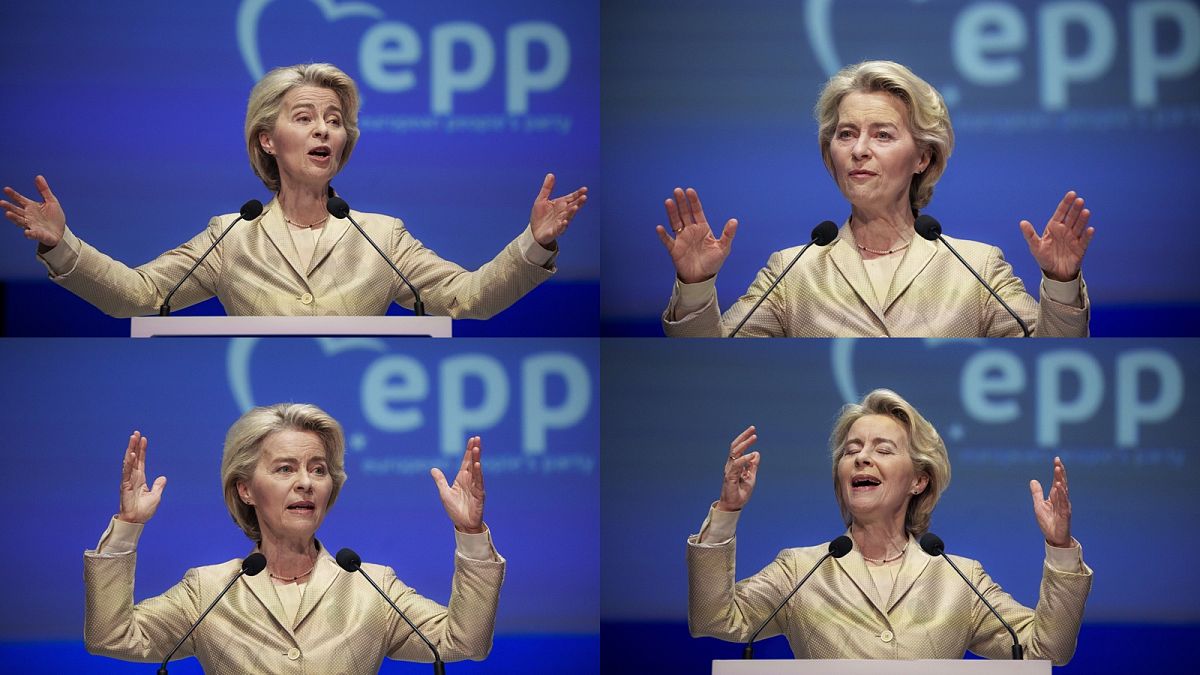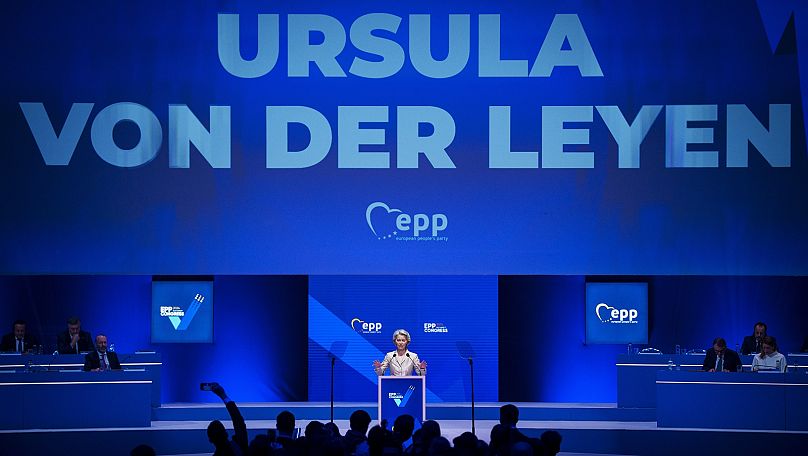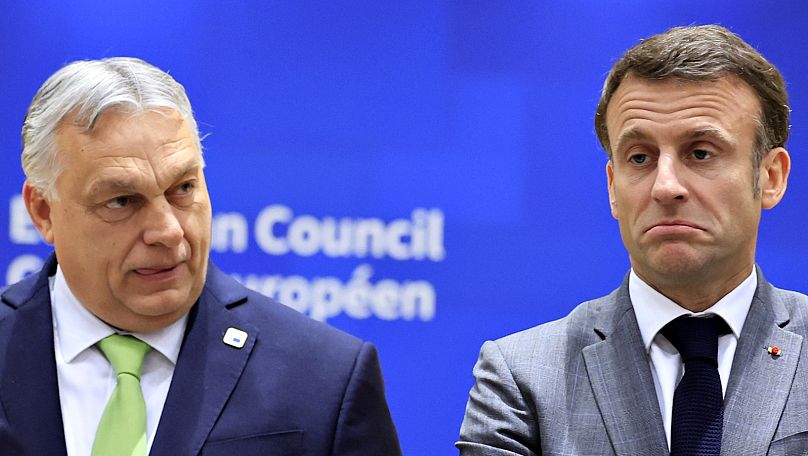The 2024 elections to the European Parliament promise to give the Spitzenkandidaten system a new chance. But can the grand project survive its inherent shortcomings and contradictions?
The system was introduced in 2014 when the bloc held the first poll after the Treaty of Lisbon entered into force. The exhaustive revision of the foundational text clarified how the president of the European Commission, the most powerful and influential institution, was to be appointed.
The new treaty said that "taking into account the elections to the European Parliament and after having held the appropriate consultations," EU leaders should select one presidential hopeful, who then has to be endorsed by MEPs in an absolute majority vote. This means the prospective Commission chief undergoes two crucial tests: first in the European Council and second in the Parliament.
Based on this provision, lawmakers came up with the Spitzenkandidaten system under which each political party, from the biggest to the smallest, has to put forward a lead candidate (Spitze means "peak" or "top" while Kandidat is self-explanatory) to preside the Commission.
These candidates should be known in advance, defend a manifesto and participate in the campaign. In return, the party that secures the largest seats in the hemicycle will be "entitled" to have their lead candidate picked by EU leaders for the coveted job, thus dispelling the obscurity that has traditionally surrounded these backroom deals, where leaders distribute positions according to geographical representation, partisan moods and other interests.
In 2014, the gamble paid off: Jean-Claude Juncker, the Spitzenkandidat of the European People's Party (EPP), the winning team, was selected by the European Council and later approved by the Parliament, becoming Commission president.
Transparency, the thinking went, was the biggest winner.
But five years later, the scheme crashed and burned spectacularly. EU leaders dismissed all the Spitzenkandidaten and surprisingly elevated Ursula von der Leyen, a politician who had not featured in the race and was discreetly serving as Germany's defence minister.
The von der Leyen nomination enraged the Parliament which saw it as an affront to its democratic standing. Lawmakers approved her appointment by nine votes, the thinnest margin ever recorded.
Fast forward to 2024 and most parties are once again nominating lead candidates and presenting fully-fledged programmes of common priorities. Brussels, it seems, is keen on reviving the model.
A question of legitimacy
But it does not take long to see the shaky ground on which the Spitzenkandidaten rests. The idea is essentially an expansive interpretation of the Lisbon Treaty line that reads "taking into account the elections to the European Parliament," which proponents believe establishes an irrefutable link between the three institutions at play.
By making this connection, the Spitzenkandidaten system pretends to emulate the working ways of national politics: parties campaign in countrywide elections, a new parliament is formed, legislators elect a prime minister who then hand-picks a cabinet, often as part of a coalition.
During this cycle, voters know all the candidates as parties plaster their faces across billboards, leaflets and online ads. The contenders attend rallies, deliver rousing speeches, give interviews and engage in TV debates.
Replicating these dynamics at the EU level is a long shot simply because the EU is not a nation-state but a union of 27, says Sophia Russack, a researcher at the Centre for European Policy Studies (CEPS), a Brussels-based think tank.
"The EU is, and this is very important, based on a dual legitimacy coming from both the European Council, representing the states, and the Parliament, representing the citizens. And I think that is the core hiccup here," Russack said in an interview.
"The EU has a very unique institutional structure. No approach fits perfectly."
The "automaticity" embedded in the Spitzenkandidaten system ignores the other pillar of the dual legitimacy, says Russack, because it pre-empts the Europan Council's prerogative and imposes a candidate by default, regardless of their qualifications.
This has not gone down well with member states who jealously protect their competences. Back in 2014, two heads of government, Britain's David Cameron and Hungary's Viktor Orbán, opposed Juncker's appointment. In 2019, there was no consensus around Manfred Weber, a long-time MEP who lacked experience in national politics, prompting an impasse that led to von der Leyen's ascent.
"The European Council, by the treaties, has to have a say. Therefore, it will never go completely out of the backroom," Russack says.
These obscure negotiations between leaders have deepened the impression that the EU suffers from a so-called "democratic deficit" that separates the bloc's decision-making from its 450 million citizens. This argument helped engender the Spitzenkandidaten system as a solution to put a face to the elections and increase accountability.
For Jim Cloos, the secretary general of the Trans European Policy Studies Association (TEPSA), the thesis of "democratic deficit" is just a pretext used by two opposing camps to achieve two opposing goals: the pro-European forces that want to boost the European Parliament's original mandate and the Eurosceptic movement that seeks to attack and de-legitimatise all supra-national institutions. Since the premise is based on "erroneous" claims, Cloos argues, it cannot be invoked to justify the Spitzenkandidaten.
"The Spitzenkandidaten model – I do not talk about a 'rule' or 'system' because it is not in the treaty and has never been accepted by the European Council – is another attempt by the European Parliament to grab more powers than it is given by the treaties," Cloos says. "It is another manifestation of an institutional power game."
From candidate to president
Another blatant incongruency is that lead candidates are asked to fully embrace party politics, hitting the campaign trail and defending a common manifesto. But then once the candidate is proposed as a potential president, the aspirant is expected to perform a 180-degree turn and behave like an independent figure above the partisan fray.
The Lisbon Treaty explicitly says so: "In carrying out its responsibilities, the Commission shall be completely independent. (The) members of the Commission shall neither seek nor take instructions from any Government or other institution, body, office or entity."
This abrupt transformation exposes the perennial detachment between the European Parliament, whose composition changes every five years, and the European Council, which is liable to the unpredictable ups and downs of national politics.
The centre-right EPP is currently the dominant force in Parliament and is forecast to stay as such. But in the European Council, none of the four largest member states – Germany, France, Italy and Spain – are governed by an EPP leader. So why would the European Council accept the EPP's Spitzenkandidat as given?
A similar question could be posed to the Parliament: why would MEPs from the losing parties endorse a president tied to a political manifesto they do not share? It is highly improbable that socialists, green and liberals will accept that somebody like Ursula von der Leyen copy-pastes the EPP's entire manifesto, including the controversial point of Rwanda-style migration plans, into the Commission's work programme.
This inconsistency was recently brought up by French President Emmanuel Macron, a vocal opponent of the Spitzenkandidaten system, who warned the Commission cannot become the "emanation" of the Parliament.
"The role of the Commission's presidency is to defend the general interest, so it must not be over-politicised, which, admittedly, has not been the case with this Commission at all," Macron told reporters, in a dig to von der Leyen.
Jim Cloos echoed this view and said that the Spitzenkandidaten could imperil the Commission's ability to work with the Parliament and the member states, as it would tilt the executive heavily closer to the former and away from the latter.
"If we take this system seriously then we say that the Commission should implement the programme of a political majority based on the elections to the European Parliament. That would actually mean that the Commission takes direct instructions from another institution. That is not what the treaty says, on the contrary," Cloos said.
"The Commission is, of course, a political institution and has always been. But not in party-political terms with a party-political programme. It is the political institution in the EU that defends the common European interest, which flows from the various national and party-political interests," he added.
Von der Leyen herself seems cognizant of the treacherous road. Since being declared the EPP's top choice, she has carefully focused her time and energy on her role as president. A social media profile set up for her campaign activities has not shared any messages since early March.
But even if she wanted to, could she campaign? A Spitzenkandidat faces the daunting prospect of travelling across 27 member states and communicating with voters who speak another language. The absence of transnational lists means citizens can only vote for lead candidates in their native countries – if possible at all. (Von der Leyen is not vying for a seat in the Parliament so her name will not appear in the German list.)
Making matters trickier for contenders is that EU elections tend to play out as national elections, as voters cast their ballots based on domestic issues and, quite frequently, in protest of the sitting leader, rather than the sitting Commission. The fact that the Spitzenkandidaten system is heavily concentrated in Brussels circles and is openly flouted by some parties in the running doesn't exactly help maximise its popularity.
Still, despite its evident shortcomings and contradictions, the model "has gained traction" and is unlikely to disappear any time soon, regardless of the fate it meets after the June elections, says Sophia Russack.
"My suspicion is that, even if the procedure is continuing and reshaped every year, this will take a long time until this really trickles down to, let's say, ordinary European citizens across the EU," Russack said.
"It doesn't need to be taken too seriously or interpreted too fussily nor dismissed. We can muddle though, as we always do."


